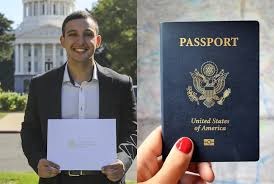How to Immigrate to the USA from Nigeria from 2025/2026
The United States is one of the most sought-after destinations for Nigerians looking for better job opportunities, education, healthcare, and a higher standard of living. However, immigrating to the U.S. involves understanding the right visa category, following strict immigration policies, and meeting eligibility requirements.
If you are a Nigerian planning to move to the U.S. in 2025/2026, this guide will walk you through the various immigration pathways, application processes, costs involved, and success stories to help you make an informed decision.
1. Understanding U.S. Immigration Pathways for Nigerians
There are several ways for Nigerians to legally immigrate to the United States. The best pathway depends on your qualifications, career, financial capacity, and family situation. The major immigration options include:
A. Employment-Based Immigration (Work Visas and Green Cards)
If you have a job offer from a U.S. employer, you may qualify for an employment visa or work-related Green Card. The most common work visas include:
- H-1B Visa (Skilled Workers) – For professionals in specialized fields such as IT, engineering, healthcare, and finance.
- H-2B Visa (Temporary Non-Agricultural Workers) – For seasonal or short-term workers in industries like construction, hospitality, and landscaping.
- EB-1 Visa (Priority Workers) – For individuals with exceptional talent in sciences, arts, education, business, or sports.
- EB-2 Visa (Advanced Degree Holders) – For those with postgraduate qualifications or exceptional abilities.
- EB-3 Visa (Skilled & Unskilled Workers) – For professionals, skilled laborers, and unskilled workers filling labor shortages.
B. Education-Based Immigration (Student Visas)
Many Nigerians immigrate to the U.S. through academic scholarships or self-funded education. Student visas include:
- F-1 Visa (Academic Students) – For those enrolling in universities, colleges, or other accredited institutions.
- M-1 Visa (Vocational Students) – For students pursuing non-academic programs, such as technical courses.
- J-1 Visa (Exchange Visitor Visa) – For those participating in government-approved exchange programs.
Scholarships and Financial Aid: Many U.S. universities offer fully funded scholarships for Nigerians. This can cover tuition, accommodation, and living expenses, making studying in the U.S. an affordable option.
C. Family-Based Immigration (Green Card Through Family Sponsorship)
If you have a relative who is a U.S. citizen or Green Card holder, they can sponsor you for immigration:
- Immediate Relative Green Card (IR-1, IR-2, IR-5) – For spouses, children, and parents of U.S. citizens.
- Family Preference Green Card (F1, F2A, F2B, F3, F4) – For other family members, including siblings and married children.
D. Investment-Based Immigration (EB-5 Investor Visa)
Wealthy Nigerians can immigrate through investment programs:
- EB-5 Investor Visa – Requires an investment of $800,000 – $1,050,000 in a U.S. business that creates at least ten jobs. After five years, investors can apply for a Green Card.
E. Diversity Visa (DV) Lottery Program (Green Card Lottery)
The Diversity Visa (DV) Lottery, also known as the Green Card Lottery, offers 50,000 people from eligible countries a chance to receive a U.S. Green Card. Currently, Nigeria is not eligible due to high past immigration numbers, but eligibility status may change, so always check the official U.S. Department of State website.
How to Immigrate to the USA from Nigeria from 2025/2026
2. Step-by-Step Guide to Immigrating to the USA from Nigeria
Step 1: Determine the Best Visa Option
Your first step should be to choose a visa category that aligns with your goals, skills, and financial situation.
Step 2: Gather Required Documents
Each visa category has specific documentation requirements, but common documents include:
1. A valid Nigerian passport (must be valid for at least six months beyond your intended stay).
2. Proof of education and work experience (for work or student visas).
3. Job offer letter from a U.S. employer (for work visas).
4. Bank statements or financial proof (for student or investor visas).
5. Birth certificate, marriage certificate, or proof of family relationship (for family-based immigration).
Step 3: Apply for a U.S. Visa
Most U.S. visa applications from Nigeria require you to:
- Complete the DS-160 Form (for non-immigrant visas) or DS-260 Form (for immigrant visas).
- Pay the visa application fee, which varies depending on the visa type.
- Schedule a visa interview at the U.S. Embassy in Abuja or the U.S. Consulate in Lagos.
- Attend the visa interview, where you will be asked questions about your background, travel plans, and financial capacity.
Step 4: Wait for Visa Processing and Approval
- If your visa is approved, you will receive your passport with the visa stamp.
- If your application is denied, you will receive a letter explaining why.
Step 5: Prepare for Your Move to the USA
1. Book your flight ticket and arrange for temporary accommodation.
2. Inform your employer, university, or family of your arrival date.
3. Familiarize yourself with U.S. customs, laws, and cost of living.
3. Common Challenges and How to Overcome Them
Challenge 1: Visa Denial
- Solution: Ensure your documents are complete, be truthful in your application, and practice for the visa interview.
Challenge 2: Financial Requirements
- Solution: Apply for scholarships, financial aid, or employer sponsorship.
Challenge 3: Job Search Difficulties
- Solution: Use platforms like LinkedIn, Indeed, and Glassdoor to find jobs with visa sponsorship.
4. Success Stories from Nigerians Who Immigrated to the USA
1. John’s Story – Software Engineer in California (H-1B Visa)
“I secured an H-1B visa through a Nigerian tech conference that linked me to U.S. employers. Today, I work in Silicon Valley, earning $150,000 annually!”
2. Ada’s Story – Nurse in Texas (EB-3 Visa)
“I applied for an EB-3 visa as a nurse. A U.S. hospital sponsored me, and now I live in Texas with my family!”
3. David’s Story – Studying on a Full Scholarship (F-1 Visa)
“I won a fully funded scholarship to a U.S. university. My education is covered, and I even get a monthly stipend!”
4. Tunde’s Story – Green Card Through Family Sponsorship
“My sister in the U.S. filed a petition for me. After a few years, I got my Green Card and moved to New York!”
5. Chinedu’s Story – EB-5 Investor Visa Success
“I invested in a real estate business in Florida, which qualified me for a Green Card. Now, I run my own business in the U.S.!”
5. Conclusion
Immigrating to the USA from Nigeria in 2025/2026 is possible through work, study, family sponsorship, or investment. By following the right visa process, preparing your documents, and seeking the right opportunities, you can achieve your goal of living and working in the United States.
Start planning early, explore visa options, and take advantage of available resources to increase your chances of a successful immigration journey.





